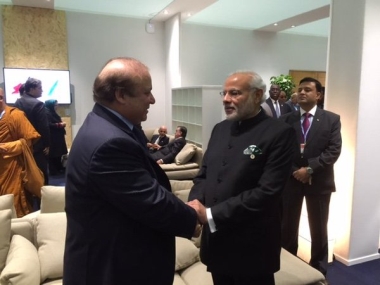The National Security Advisors of India and Pakistan held a secret meeting in Bangkok on Sunday. They discussed a range of issues including peace and security, terrorism and Jammu and Kashmir. Apparently, this meeting was agreed on by Prime Minister Narendra Modi and his Pakistani counterpart Nawaz Sharif when they met in Paris last week. Bangkok was chosen as a neutral and convenient location for both sides.This is an interesting development having multifarious connotations — generic and specific. From a generic perspective, it would appear that the era of ‘open diplomacy’ is over. This assertion may be critiqued on two grounds: First, open diplomacy is an oxymoron — it was never really ‘open’ diplomacy and second, even if it is conceded that a degree of open diplomacy characterised states, it would be hyperbolic to suggest that it is over. The sample — India and Pakistan — is too small and too exceptional to extrapolate or even infer a pattern. Exceptions, in this schema, do not make the norm. [caption id=“attachment_2528012” align=“alignleft” width=“380”] Narendra Modi and Nawaz Sharif in Paris. Twitter @MEAIndia[/caption] Historically, since the emergence of the Westphalian system of states and the operational dynamic of the ‘balance of power’ that defined interstate interaction, heads of states usually took recourse to ‘secret diplomacy’ — where the art of the secret was elevated to a fine form. Heads of state and their emissaries conducted diplomacy behind the scenes and in secret. This feature of interstate politics was critiqued and criticised as opaque and unrepresentative of the wishes and will of people, and many conflicts were attributed to this form of diplomacy. The problems of asymmetric information and moral hazard were peculiar to this form of diplomacy. Woodrow Wilson — the great American statesman — was vocal in his criticism of secret diplomacy. With the successive waves of democratisation, secret diplomacy and ‘treaty politics’ were gradually somewhat disavowed. Having said this, states are states — their apparatus spawns bureaucracies and intelligence agencies. Intelligence agencies work and operate in a shadowy world — a world where secrecy is a reflex and the art of the secret means and implies contacts, networks or even parleys with adversaries. But the problem here is that intelligence agencies might be good at espionage, information-gathering, subterfuge or even opening contacts with adversaries, but they cannot enter into agreements or dialogues with other states. It is the prerogative of the states — especially the heads of states — to do that. (It has been speculated that, at times, if the state’s definition of ‘state’ or ’national interest’ clashes with that of the head of state, intelligence agencies can take recourse to assassination or murder. John F Kennedy’s assassination is cited as an instance here). So basically, for binding treaties and agreements that are binding, the state is needed to legitimise these. And states take recourse to both secret and open diplomacy. The world that we live in is characterised by an unusual degree of openness and democratisation of various spheres — especially information. The advent and network effect of the Information Communication Technologies (ICTs) has made it possible. Time and space have been compressed and information has been commoditised. In this milieu, governments are subject to greater scrutiny and information percolates into the public domain quickly. This trend or theme can complicate matters for governments especially in interstate interactions. Statesmanship warrants, at times, going against what people or other institutions of the state think. This axiomatically means developing and forging understandings with adversaries and opponents on sensitive and key issues. A degree of secrecy and strategic use of the media becomes exigent here — or , in other words, secret diplomacy. This is what may be happening in the iterative but live-wire diplomacy between India and Pakistan. Both countries may be attempting to get a better feel and understanding of each other, their sincerity of purpose, motivations, constraints and other issues. A time-consuming exercise, this calls for patience, sense, sensibility and more importantly, does not create a tsunami of expectations which flounder on the shores of reality. If this indeed is the paradigm to which India and Pakistan have agreed, then two consequences flow from it: One, interstate interaction is not monochromatic or black and white; it has elements of both open and secret diplomacy. Two, there might be a degree of seriousness in the NSA-level talks in Bangkok. It may even be portentous of something prudent and desirable: Substantive and meaningful dialogue between arch-rivals India and Pakistan. If this is the case, then the ‘open secret parleys’ are welcome.
The National Security Advisors of India and Pakistan held a secret meeting in Bangkok on Sunday. They discussed a range of issues including peace and security, terrorism and Jammu and Kashmir. Apparently, this meeting was agreed on by Prime Minister Narendra Modi and his Pakistani counterpart Nawaz Sharif when they met in Paris last week.
Advertisement
End of Article


)

)
)
)
)
)
)
)
)



